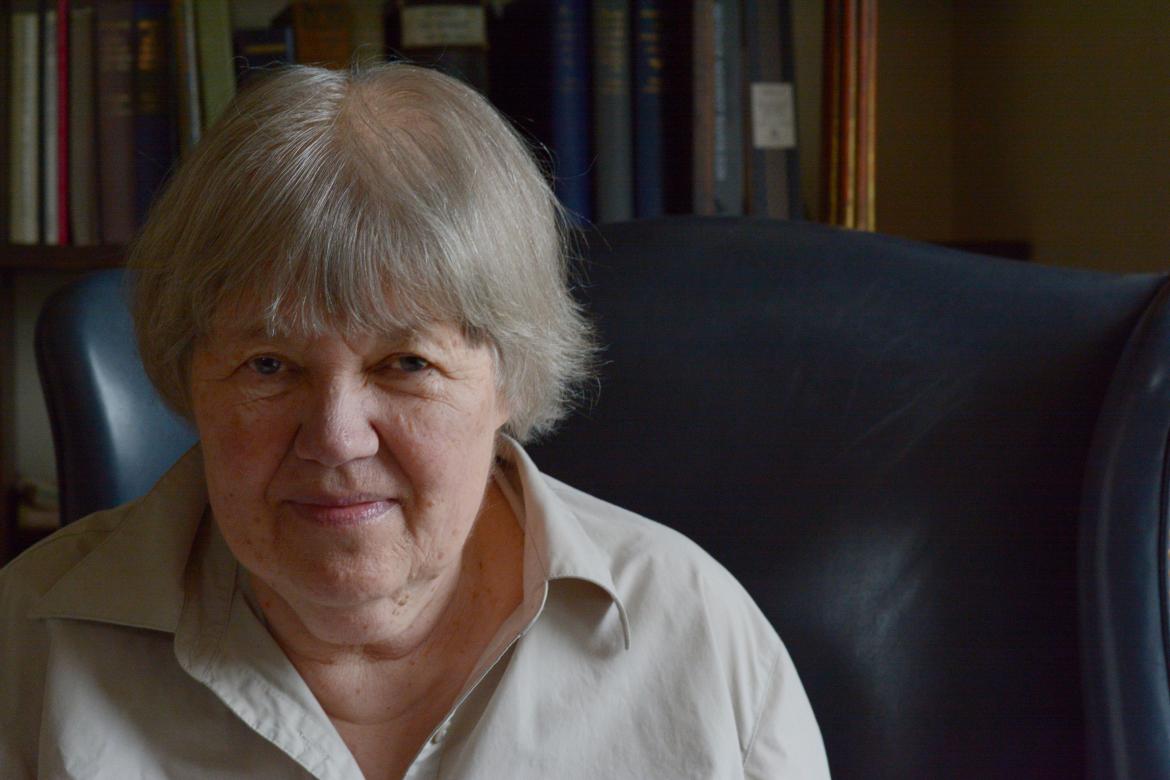
Dr. Jean Barman is a well-known BC historian whose books have won numerous awards.
May 10, 2016 - 9:00am
Award-winning author Dr. Jean Barman wrote the definitive text on BC history
Dr. Jean Barman is a lover of stories, especially those told to her by the people she meets around the province. It’s these stories, the ones that no one else has told, that fascinate the renowned British Columbia historian and author and motivate her to write.
In her books, she uses these stories to hook into broader historical themes, bringing to the forefront many aspects of BC history that otherwise would never have seen the light of day.
“We have to have stories,” explains Barman. “If we don’t tell stories, we’re not going to get very far. But you have to get beyond the stories, and leave it open enough that people can take out of the stories what they want, what attaches to their lives.”
Barman is receiving an Honorary Doctor of Letters at Vancouver Island University’s (VIU) convocation ceremony on June 7 at 2.30 pm in recognition of her long career of bringing the province’s history to life through her numerous works, including more than 20 books, many of which have won prestigious awards, and 50 articles and chapters. One of her books, The West beyond the West: A History of British Columbia, is considered the definitive text on BC’s history.
“That’s because no one else has written one,” Barman jokes, ever humble about her accomplishments.
And her accomplishments are many when it comes to putting BC history on the map, says Dr. Helen Brown, Professor Emerita of History at VIU and nominator. “She’s made history important in this province. When you look at her CV, you see all of her accomplishments and you think, ‘Wow, that’s a real lifetime of success,’ but what you don’t see when you look at that list is another part of Jean that is equally important – her ability to connect with people. She has built supportive relationships with people all over this province – students, other scholars, Indigenous people, Chinese Canadians, to name some examples. She’s sort of a one-woman melding of the vibrant heritages of British Columbia.”
Born in Minnesota, Michigan, Barman moved to Vancouver in 1971 when her husband, historian Roderick Barman, took a job at the University of British Columbia (UBC). “If you’re from the mid-West, whether it’s the Canadian prairies or the American mid-West, BC has a certain magical quality about it,” says Barman. “Early on, I got very interested in the province’s history, but a lot of things I wanted to know weren’t written down.”
After she completed her doctorate in educational history at UBC in 1982, she began teaching there, lecturing around the province and working with doctoral students, which allowed her to hear a lot of these lesser-known stories. “I’ve had the freedom to write about topics in BC history that are not big topics, but small topics that affect real people. One edge of me is always writing about something that real people can read. You hope that you can engage people at different levels.”
One thing she’s found fascinating about BC is the diversity of its community and how different groups of people have come to live together. She’s written a lot about Indigenous women’s relationships with white, male immigrants, a topic she finds challenging because it’s hard to find enough material to write about these women. She’s also covered the significant roles French Canadians and Chinese Canadians played in the province’s history.
“Instead of taking pride in all the various elements that are part of what BC is, for a long time, we’ve valued some of them and tried to pretend other elements didn’t exist,” explains Barman. “Our history is formed out of all of these various diverse elements, some of which have been talked about, others have disappeared from view because they were considered not right. Part of what I’ve been writing about is how much more diverse a place BC is than we thought about it being for a long time. It also encourages other people to talk about their own experiences, because it’s okay to do so. It helps give people pride in their backgrounds, whatever they may be, show them their families have made important contributions.”
This commitment to preserving all aspects of BC’s history has not gone unrecognized. In 2002, Dr. Barman was inducted as a Fellow of the Royal Society of Canada and she received the Queen Elizabeth II Diamond Jubilee Medal in 2012. She has also received numerous literary awards for her works, including the Governor General’s History Award for Scholarly Research, the George Woodcock Lifetime Achievement Award, the City of Vancouver Book Award and the Lieutenant Governor’s Medal.
Some of the awards and recognitions Barman has received are for her efforts in connecting groups of people interested in BC history, and she has a long history of involvement with numerous historical organizations, including the BC Heritage Trust, the Canadian Historical Association and the Chinese Canadian Historical Society of BC (CCHSBC). Dr. Imogene Lim, an anthropology professor at VIU, says before the CCHSBC was incorporated as a society, Barman was there from the very beginning to discuss its creation. “There was a willingness on her part to pitch in, in whatever fashion,” she remembers.
Brown agrees that Barman doesn’t just connect with people to write her books – she has also helped bring individuals and different groups together who share a common interest. “She doesn’t relate to different groups individually, she connects them,” says Helen. “She’s hugely altered the landscape of BC history in a very inclusive way.”
Barman will accept her honorary doctorate on Tuesday, June 7 at the 2:30 pm convocation ceremony. To learn more about VIU’s convocation ceremonies, click here.
-30-
Media Contact:
Jenn McGarrigle, Communications Officer, Vancouver Island University
P: 250.740.6288 | C: 250.619.6860 | E: jenn.mcgarrigle@viu.ca
Tags: Announcements



